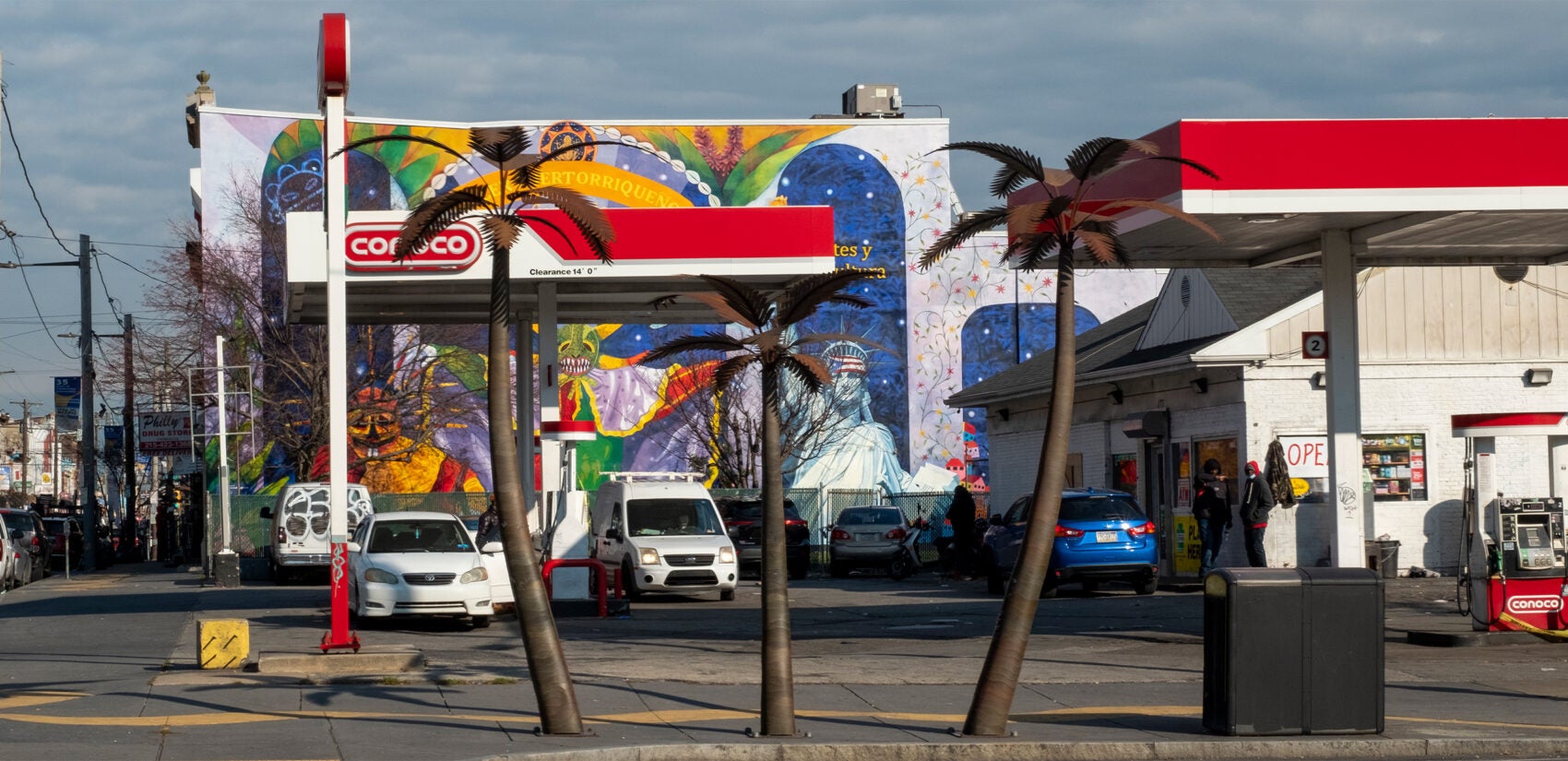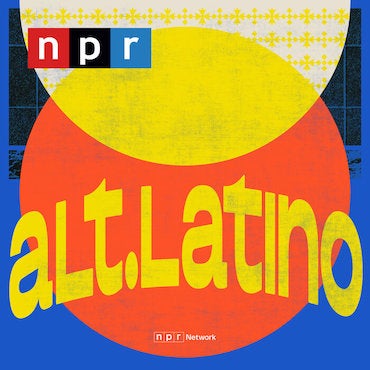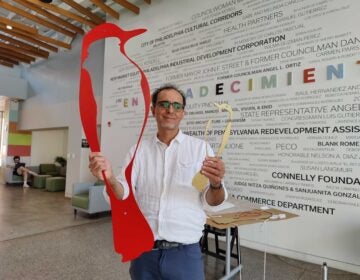La Gua Gua 47: A salsa song written by SEPTA stan and Latina powerhouse Alba Martínez
“La Gua Gua 47” — the 47 Bus — honors the summer day in 1985 when Martínez rode SEPTA to the heartbeat of Philadelphia’s caribeña community.
This story is part of The 47: Historias along a bus route, a collaboration between WHYY’s PlanPhilly, Emma Restrepo and Jane M. Von Bergen.
This article is written in English. To read this article in a combination of English and Spanish, click or tap here o para leer este artículo en español, haga clic o toque aquí.
Alba Martínez is a lawyer, former executive and now, a songwriter.
“La Gua Gua 47” — the 47 Bus — is her newly released song, written to honor the summer day in 1985 when she rode the SEPTA bus to 5th and Lehigh to find the heartbeat of Philadelphia’s caribeña community.
Martínez, a native of Puerto Rico, had just arrived in the city from Washington D.C., where she had earned a law degree at Georgetown University. There on the busy street she found her community in her new hometown.

She felt the energy. “It changed my life. When I got off at 5th and Lehigh, there was a combo playing in front of el Centro Musical, the music coming through the windows of the bus, a lot of color, a lot of people hugging, greeting each other, a lot of energy. And there began my contact with my people that led to many relationships, both work and friendship, as well as music — it is my life in Philadelphia.”
And that energy was what she remembered at her piano when “La Gua Gua 47” moved from her heart to her fingers. It features local pianist and producer David Colón, Venezualan vocalist Leo Gruber, as well as trombonist Humberto Alicea, a beloved Philadelphia musician who passed away in December.
With a beat that moves you to dance, the salsa song tells the story of “a very important moment in my life,” Martínez said. “It tells the story of my arrival and my sense of loneliness.”
The 47 bus had taken her home.
“It was such a profound thing. It’s an image that will always be with me,” she said. “I get off and there I am in another world. I am in Latin America.”

From the bus to the board
Martínez had moved to Philly for a job at Community Legal Services, and from there she built an impressive resume in her adopted city — a resume all the more impressive considering how difficult it is for women in general, and for women of color in particular to move into leadership positions. For example, as of October, only two women — both white — held the title of CEO in the region’s top 100 publicly traded companies, according to a 2020 report from Philadelphia’s Forum of Executive Women. One of them has since left.
Martínez moved from law into top leadership positions at Congreso de Latinos Unidos, the state’s largest Latino health and human services nonprofit; the Philadelphia Department of Human Services, and the United Way of Greater Philadelphia and Southern New Jersey, which is the region’s largest fundraising and community impact organization.
In 2008, she pivoted to the for-profit finance world, advancing to ever-more responsible positions at The Vanguard Group.
Martínez retired from the financial powerhouse in December to return to her “North Star,” her social justice work. She has started her own nonprofit, Sol Impact Ventures, and she is on the board of the Comité del Taller Café.
The move onto the board of the community-based arts and culture organization returned her back to North 5th Street. In one way, it was a full circle. When Martínez had just moved to Philadelphia in 1985, she called the center to find the Latino community in her new city. On the other end of the line, she found a sympathetic ear as she described her longing to connect.
“He received me so effusively over the phone,” she recalled. “He said, `Look nena, run to 5th and Market, get the Route 47 bus and as soon as you get to 5th and Lehigh, get off. You’re going to see my building on the corner with a big mural.’ That same day, I ran out, rode Route 47 and it opened a whole world for me.”
When Martínez arrived in Philadelphia, the Latino community was primarily Puerto Rican. Since then, she said, the Latino community has grown larger and more diverse “with a much larger representation of South America and Central America in addition to the Caribbean. The Dominican community grew big here since that time.”
“One of the things I’m very excited about is seeing the new generation of leaders. I’m excited to start working with them,” she said.
The beat of opportunity
Many of the Latino leaders she first met are still active, she said, but “in addition to that, I see a generation of people who are in their thirties, in their 20s, their 40s doing a very impactful job in terms of social justice, culture, immigration issues. Philadelphia did not have that diversity of leadership that we have now.”
Different groups have different priorities, she said. For example, Puerto Ricans, who have American passports, don’t experience the same legal immigration issues as people from Central and South America, but “when we come to the United States, many of us, not all of us, face the same disadvantages that other immigrants face — racism, difficulty getting a job,” Martínez said.
“I think the similarities are more than the differences,” she said.
“For me, the root of the vast majority of all problems that we face in the Latin communities in Philadelphia is the lack of economic equality and the lack of access to capital, both personal capital and capital for business,” she said, “so that’s the space I’m interested in working in.”

Even as Martínez pursued her leadership roles, she never neglected her other passion, music. In Washington, D.C., she joined an Andean music group and played the charango, which is like a guitar, and the bomba, a drum. In Philadelphia, she performed with “Corazon al Sur,” or “Heart of the South,” which played at street festivals.
These days, she is reconnecting with music, music composition. and production. “I was shocked a lot that I did not find — and again we are talking about looking for a community that is difficult to find — women who could record my productions.”
“I am committed also, in addition to producing music … to do something to increase the visibility and support and access of women in music — whatever they need to achieve economic equality,” she said. “Because, when we’re seeing a reality where there aren’t enough women in the production space, that means all the money in music production is going into the hands of men.”

Subscribe to PlanPhilly
WHYY is your source for fact-based, in-depth journalism and information. As a nonprofit organization, we rely on financial support from readers like you. Please give today.







